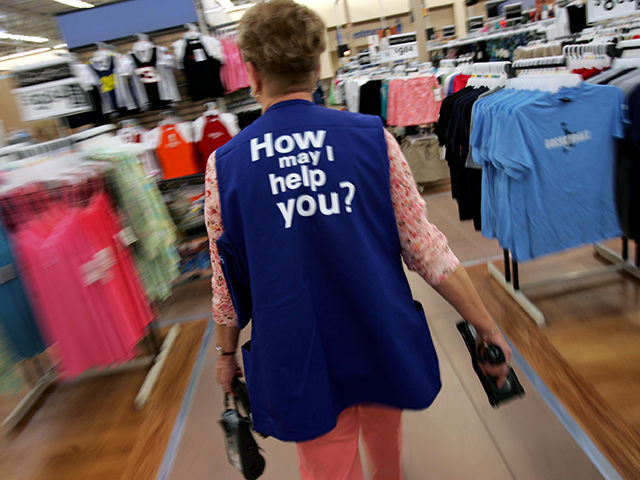Shares of Walmart crashed 11 percent on Tuesday after the company reported first-quarter results showing that its profits had plunged as the nation’s largest retailer grappled with surging inflation and supply chain disruptions.
The company also said it was cutting its forecast for full-year earnings, which it now expects to decline from last year.
The Bentonville, Arkansas-based retailer is often looked at as a bellwether for the U.S. economy and the health of the consumer due to its size and the breadth of its customer base. The U.S. economy has been powered along by high levels of consumer spending this year but the Walmart first quarter results show the drag inflation has on real economic growth.
Walmart’s sales rose 2.4 percent to $141.57 billion. That was better than the $138.8 billion that analysts had projected. But inflation ate away the profits.
Walmart said it had first-quarter earnings of $2.05 billion, or 74 cents per share. Adjusted earnings per share totaled $1.30, far short of the consensus forecast of $1.48 per share. A year ago, the company made $2.73 billion, or 97 cents per share, in the first quarter.
The company says it now expects full-year earnings to decline one percent. Just a few months ago, it said it was expecting mid-single digit growth.
“Bottom line results were unexpected and reflect the unusual environment,” said CEO Doug McMillon. “U.S. inflation levels, particularly in food and fuel, created more pressure on margin mix and operating costs than we expected.”
Inflation is changing the mix of consumer spending, Walmart executives said Tuesday. High prices are forcing some customers to choose generic, private-label brands over national brands, especially in lunch meats, Walmart executives said.
Sales at already existing U.S. stores rose 3 percent, much slower than the fourth quarter rise of 5.6 percent and the 9.2 percent increase in the third quarter. Online sales rose 1 percent, a big deceleration as people return to pre-pandemic in-store shopping.
The cost of food at home is up 9.4 percent compared with a year ago, according to the Consumer Price Index. That’s especially tough on Walmart, which is the largest grocery seller in the U.S.
—The Associated Press contributed to this report.

COMMENTS
Please let us know if you're having issues with commenting.